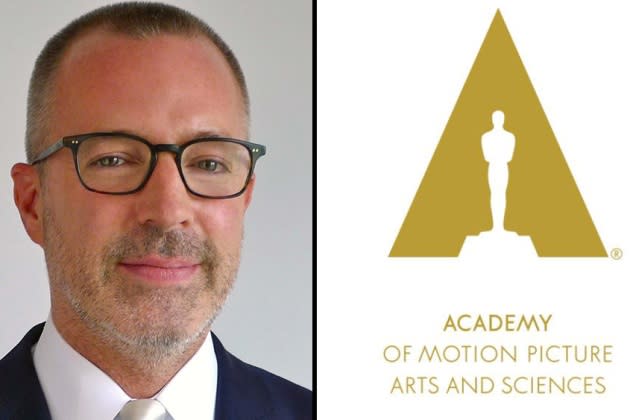Predictions, Large And Small, For The Academy’s Kramer Regime
- Oops!Something went wrong.Please try again later.
- Oops!Something went wrong.Please try again later.
- Oops!Something went wrong.Please try again later.

Wow. Bill Kramer’s lightning strikes at the Academy of Motion Picture Arts and Sciences—into the chief’s job 17 days early, Chief Operating Officer Christine Simmons out by mid-morning, Jacqueline Stewart in place to take his old Academy Museum post less than a week later—are impressive. Even the Academy’s often spotty website was updated in real time: The revised executive lineup posted as the coup got underway.
Really, Kramer moved in like Grant took Richmond. Slowly at first (a lot of lobbying preceded his appointment to replace predecessor Dawn Hudson), and then all of a sudden. Boom!
More from Deadline
Bill Kramer Takes Movie Academy CEO Reins Weeks Ahead Of Schedule; COO Christine Simmons Out
Movie Academy Invites 397 Members To 2022 Class; Ariana DeBose, Billie Eilish, Troy Kotsur On List
So now what?
In the first week of a new fiscal year, less than a month until the election of a new Academy board president, with 248 days to maneuver before the next Oscar show (but who’s counting?), Kramer holds in his hands the rare opportunity to salvage and perhaps reshape an American institution.
The last few years haven’t been good to the Academy, nor to the film industry it serves. Revenue is down. Tensions are high. The awards business is shaky—inevitably caught up in the culture wars, and in an across-the-board decline (as reported this week by the Gallup poll) in regard for business, government, social structures and media.
Why shouldn’t Will Smith take a whack at Chris Rock? We’re in a national funk. Everyone’s mad at someone—and that’s before stagflation really hits home.
But a perceived bottom may be the best place for a fundamentally constructive and pragmatic character like Kramer to begin building up. He seems to have reconstruction in mind. What that will look like is far from clear. But here are a few guesses, large and small:
On the small side, I suspect there will be considerable reorganization of the Academy staff, which seems to number between 450 and 650, depending on how you count, the time of year, and which handout you believe. For the most part, this is an internal affair, of little interest to the public, but of great consequence to the individuals who organize the annual Oscar show and run the various archives and programs that give the institution its weight. Though Kramer landed on a key change—losing an existing chief lieutenant—the inner vibe, so far, seems to portend reform or reassignments rather than mass firings. To replace the staff with the Oscars only eight months away wouldn’t make much sense. To re-focus staff members on service and a strong code of conduct couldn’t hurt, and is almost sure to happen.
At a still more granular level, you have to believe that Kramer’s deep attachment to the museum, where he had been a fund-raiser before leaving and then returning as director, will lead to an ever-tighter operating bond between that institution and its parent. One for-instance: Look for the museum to get first call on the collections and resources of the Academy’s Margaret Herrick Library, which is technically open to the public, but has struggled with access issues during the pandemic. It wouldn’t surprise me to see oral histories that have been locked up in the scholar-friendly Herrick somehow emerging in a more popular context at the museum.
But, stepping out of the weeds, what about the Oscar show? While last year’s slap-nasty broadcast rebounded somewhat to 16.7 million domestic viewers, neither the Academy nor ABC can be satisfied that number, down by more than half from recent years.
A personal prediction: Kramer and a new, yet-to-be-named Academy president, replacing termed-out David Rubin, will conspire to wring any sharp comedy out of next year’s show. Memories of the Will Smith moment are too raw. The best way to avoid echoes (wouldn’t a funny guy/gal host have to crack wise about it?) might be to ease toward a softer format, perhaps something like the Hugh Jackman inside-the-show business-parlor ceremony of 2009, which had humor but generally avoided sharp jabs. Nothing can prevent winners from voicing political jibes, and there will be plenty of those. But anything under the Academy’s control will stay on the warm and fuzzy side.
Another prediction, purely my own: Eventually, Kramer will have to reassess the pending racial, gender and disability inclusion standards for Best Picture contenders; but that won’t happen quite yet. Those standards won’t become mandatory until the next awards year. By then, any legal and cultural issues touching on the Academy’s collection of very personal identity data will have come to the fore, and allow a constructive and pragmatic chief executive to adjust the program’s more rigid aspects without dismissing its goals.
Best of Deadline
2022-23 Awards Season Calendar - Dates For The Oscars, Emmys, Guilds, Festivals & More
NFL 2022 Schedule: Primetime TV Games, Thanksgiving Menu, Christmas Tripleheader & More
Sign up for Deadline's Newsletter. For the latest news, follow us on Facebook, Twitter, and Instagram.

